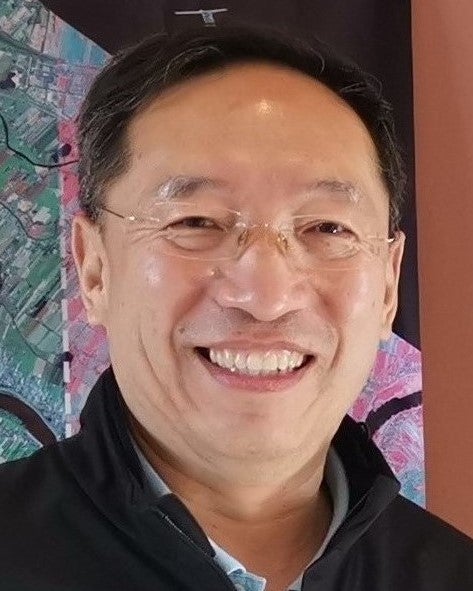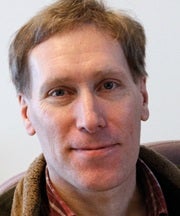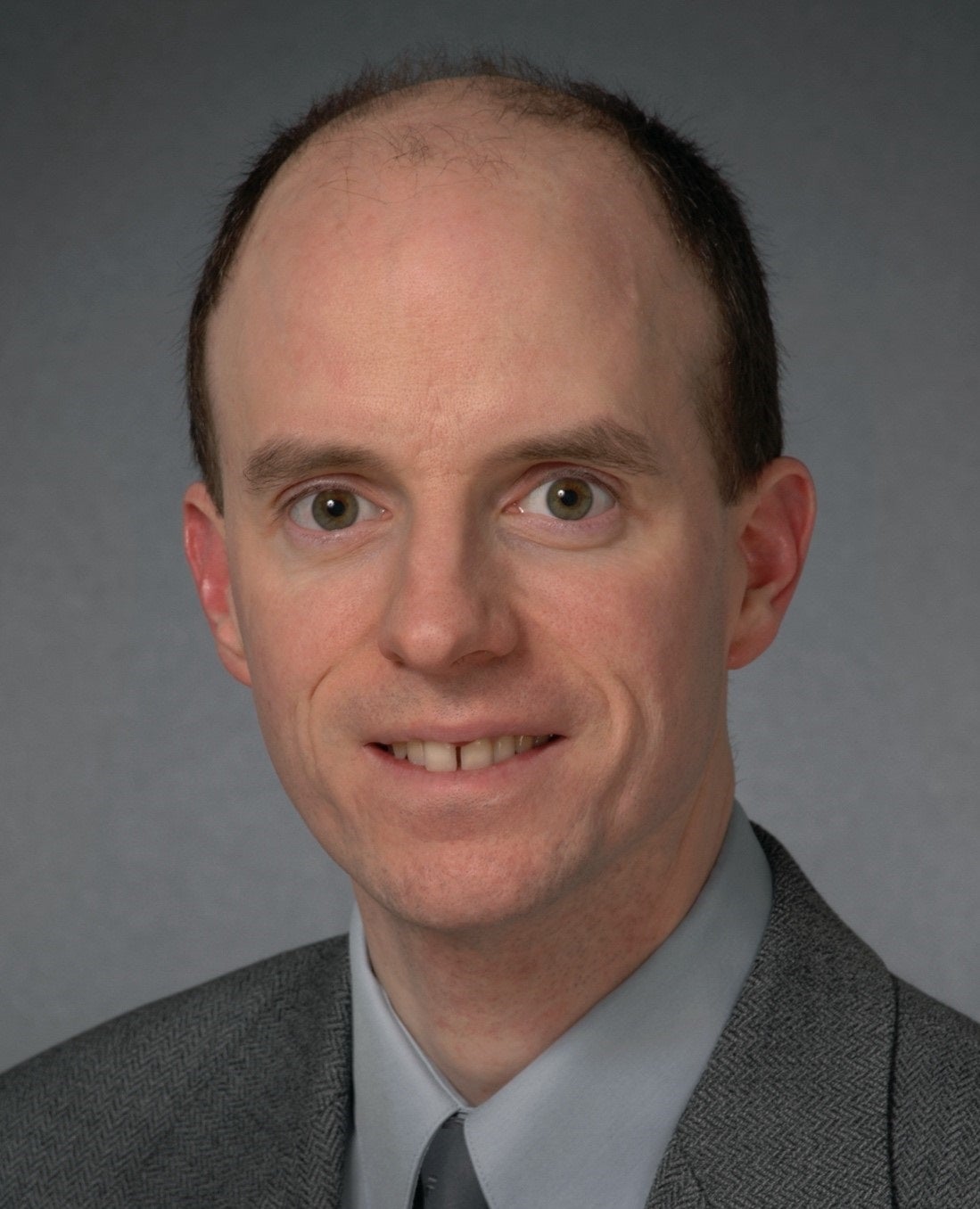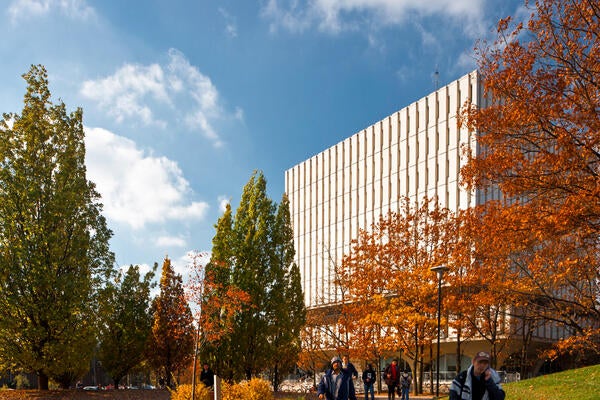
Celebrating outstanding supervisors
Professors from three faculties honoured for their support and guidance of graduate students

Professors from three faculties honoured for their support and guidance of graduate students
By Chantal Vallis, Melodie Roschman and Brian Caldwell Faculty of Environment, Faculty of Mathematics and Faculty of EngineeringProfessors from three faculties at the University of Waterloo have been recognized for their outstanding supervision of graduate students.
Dr. Jonathan Li, Dr. John Long and Dr. David McKinnon are the 2022-2023 recipients of the Award of Excellence in Graduate Supervision, an annual distinction bestowed by Graduate Studies and Postdoctoral Affairs in collaboration with the Graduate Student Association.
Nominations and adjudication for the awards are based on submissions by former graduate students, who rate and reflect on their experiences with faculty members.
 Dr. Jonathan Li is a professor of geography and environmental management and head of the Geospatial Intelligence and Mapping Lab.
Dr. Jonathan Li is a professor of geography and environmental management and head of the Geospatial Intelligence and Mapping Lab.
Over the past 16 years, he has established an international reputation for his research in urban remote sensing and geospatial data science and become a sought-after supervisor.
His record of graduate supervision includes advising 11 PhD students and 43 master’s students to completion, while sitting as a committee member for many more, both at Waterloo and other institutions. He has also supervised five postdoctoral fellows.
Li’s students describe him as an impressive role model who inspires them to high levels of achievement. He is a kind and compassionate advisor who is active as a mentor and networker, while being patient and generous with his time.
With his guidance, graduate students under Li’s supervision have a very strong record of publication in top-tier international journals and attendance at prestigious conferences, and have received awards for their thesis work from the Canadian Remote Sensing Society. Many have gone on to impactful careers at universities and research institutions around the world.
 Dr. John Long is a professor of electrical and computer engineering who holds seven US patents and has published more than 75 journal papers and 136 conference publications, most of which he co-authored with his graduate students.
Dr. John Long is a professor of electrical and computer engineering who holds seven US patents and has published more than 75 journal papers and 136 conference publications, most of which he co-authored with his graduate students.
He has supervised 62 master’s students and 26 doctoral students, is a fellow of the Institute of Electrical and Electronics Engineers (IEEE) for his research in microchip design and served as founding editor-in-chief of the IEEE RFIC Virtual Journal for eight years.
Long has always promoted independence in his graduate students, while encouraging a culture of student-centric research ownership. Many former students hold high positions in industry and academia.
“I try to give all of my students the resources they need and freedom to pursue their research ideas as far as they can take them,” he said. “This requires patience, being approachable and taking a hands-off approach when managing projects that are running well.”
His mentoring and support have extended well past graduation, with one former graduate student commenting that “I never lost contact with him.”
 Dr. David McKinnon is a professor of pure mathematics. Since joining the Faculty of Mathematics in 2001, McKinnon has participated extensively in university life, serving first as associate dean, undergraduate and now as chair of Pure Mathematics.
Dr. David McKinnon is a professor of pure mathematics. Since joining the Faculty of Mathematics in 2001, McKinnon has participated extensively in university life, serving first as associate dean, undergraduate and now as chair of Pure Mathematics.
McKinnon is passionate about teaching, as evidenced by his receipt of the Faculty of Mathematics Award for Distinction in Teaching in 2008 and the University’s Distinguished Teacher Award in 2017. He especially enjoys finding fun and effective ways to create better math education, such as the recent Teach-Off he helped organize.
McKinnon finds the time to supervise an unusually high number of graduate students for a pure math professor, with 10 PhD students and 25 master’s students to date – one of the most prolific supervisors in department history.
“David McKinnon was extremely encouraging and generous with his time, always available to meet whenever I asked,” said Robert Garbary, one of his former graduate students.
“Each graduate student is different,” McKinnon said, “and my central philosophy has always been to treat them all like responsible adults that are worthy of my support and respect.”

Read more
Here are the people and events behind some of this year’s most compelling Waterloo stories

Read more
Twenty-six researchers receive federal funding to drive discovery, innovation and research infrastructure development

Read more
The Royal Society of Canada welcomes five new fellows and one RSC College member from the University of Waterloo
The University of Waterloo acknowledges that much of our work takes place on the traditional territory of the Neutral, Anishinaabeg, and Haudenosaunee peoples. Our main campus is situated on the Haldimand Tract, the land granted to the Six Nations that includes six miles on each side of the Grand River. Our active work toward reconciliation takes place across our campuses through research, learning, teaching, and community building, and is co-ordinated within the Office of Indigenous Relations.